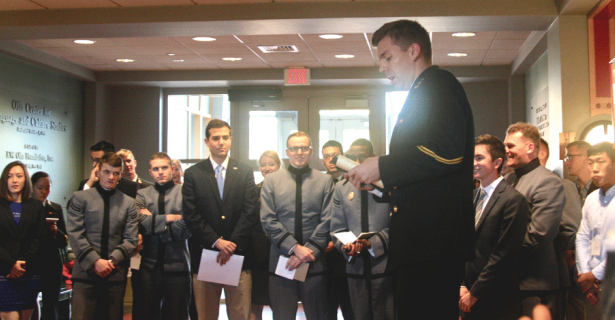On Saturday afternoon, over sixty people – including students from Tufts University, the U.S. Military Academy at West Point, the U.S. Naval Academy at Annapolis, Wellesley College, and the University of Northern Georgia – engaged in the three-hour-long Diplomatic Crisis Simulation. Each participant acted as a diplomat for one of four countries meeting at a regional trade conference centered upon freedom of movement through a shared body of water. Each state had its own characteristics, needs, priorities, and means, depending upon its size and specialty. Additionally, reserve officers from EUCOM volunteered as advisors for the student groups.
Friction immediately arose when a cruise ship traveling between two countries sank under mysterious circumstances, killing hundreds of civilians. As conflicting news reports (delivered via Twitter) muddied the already cloudy picture, partnerships and rivalries emerged among states jockeying for position. On several especially tense occasions, the diplomats strongly and seriously considered advising their presidents to initiate an offensive operation against an adversary. Had a state decided to launch a bombing campaign or a cyberattack against a foreign target, the region would have almost certainly descended into chaos and bloodshed.
Ultimately, however, the participants realized that cooperation over shared interests was more beneficial than conflict. By the end of the simulation, all four countries had overcome their most significant differences, compromised with one another, and established a regional economic and security alliance. To be sure, not all of the loose ends were wrapped up (as is to be expected), but the participants agreed that the pipe dream of perfection should not get in the way of progress and peace.

